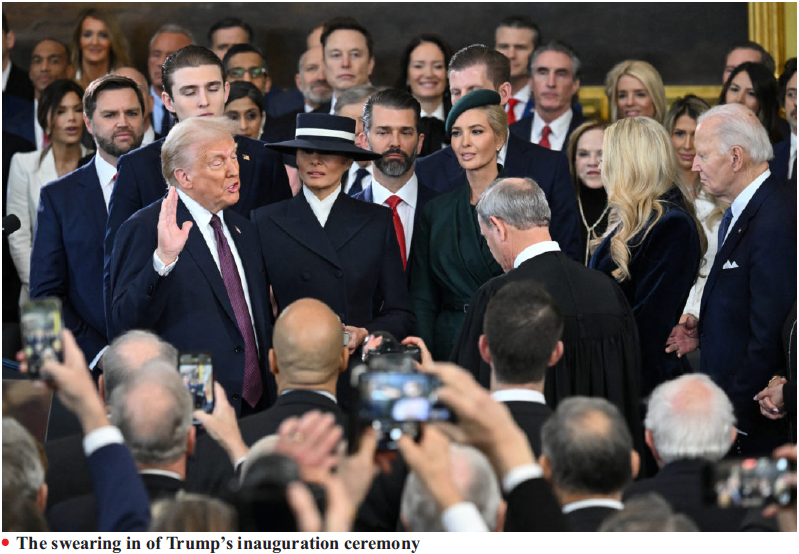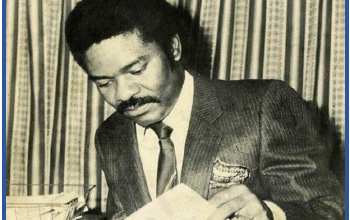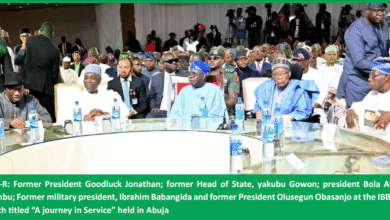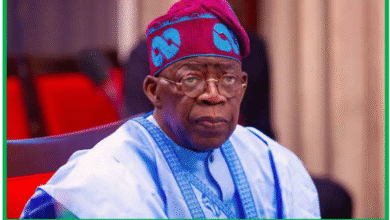THE RETURN OF DONALD TRUMP: IMPLICATTIONS FOR GLOBAL TRADE, ECONOMY AND SECURITY

THE RETURN OF DONALD TRUMP: IMPLICATTIONS FOR GLOBAL TRADE, ECONOMY AND SECURITY
On a brisk November evening in 2024, Donald J. Trump strode across the stage to claim victory as the 47th President of the United States. With a fiery campaign promising sweeping changes to trade, foreign policy, and national security, Trump’s return to the White House has sent ripples across the global political and economic landscape.
His return to the White House in January, 2025 marks a pivotal moment in world politics. His presidency, characterized by a blend of bold rhetoric and unpredictable policy-making, has once again become a central force shaping the trajectory of global trade, economic relations, and international security. As the world braces for his policies, the ripple effects promise to redefine alliances, challenge established norms, and pose both risks and opportunities for nations worldwide.
Central to Trump’s campaign was a promise to impose steep tariffs on imports, ranging from 10% to 20% on general goods and up to 60% on Chinese products. This protectionist stance has sparked widespread concern among economists and global leaders alike.
EUROPE’S TIGHTROPE: RESETTING RELATIONS
Trump’s tariff policies could reignite trade tensions between the U.S. and the EU. Ed Davey, a senior British politician, highlighted the urgency of fixing the UK’s relationship with the EU, emphasizing the importance of trade and defense cooperation. Chancellor Rachel Reeves echoed these sentiments, advocating for a “reset” of ties with Europe to safeguard interconnected markets. However, any concessions the UK might offer to gain exemptions from U.S. tariffs risk alienating European partners, further complicating post-Brexit relations.
Professor Jonathan Portes of King’s College London foresees a “severe shock to the global economy,” with repercussions felt even in the UK. According to the National Institute of Economic and Social Research (NIESR), the UK’s growth could be halved, inflation could surge, and interest rates might climb if retaliatory tariffs ensue. The cascading effects would likely destabilize markets, further strain supply chains, and exacerbate tensions between trade-dependent nations.
THE UK’S DILEMMA
For the UK, the stakes are particularly high. Chancellor Rachel Reeves has pledged to lobby the Trump administration for exemptions, emphasizing the interconnected nature of UK and EU markets. However, obtaining such concessions may come at a price, potentially forcing the UK to reconsider its stance on inward investment screening and export controls.
Liam Byrne, Labour MP and chair of the Commons Business and Trade Committee, described the proposed tariffs as a “doomsday scenario.” With the EU as the UK’s largest trading partner, voices like Ed Davey’s are urging for a renewed focus on mending UK-EU relations to mitigate Trump’s trade policies’ fallout.
Indo-Pacific Dynamics: A Strategic Chessboard
The Indo-Pacific region’s strategic significance has grown, and Trump’s return could redefine U.S. engagement there. His administration’s hawkish stance on China—exemplified by plans to bolster military presence and tighten supply chain security—is a double-edged sword.
While allies such as Japan, India, and Australia might welcome a tougher U.S. stance against China’s assertiveness, Trump’s transactional approach could undermine long-standing alliances. His proclivity for trade wars and disdain for multilateralism risks destabilizing the region, leaving smaller nations to navigate an increasingly perilous geopolitical environment.
The appointment of “China hawks” like Marco Rubio and Mike Waltz underscores the administration’s intent to adopt an aggressive posture. Yet, this could also embolden China to accelerate its efforts to assert dominance, particularly in Taiwan and the South China Sea, creating a potential flashpoint for conflict.

Africa: Opportunities and Oversights
Africa’s role in the global economy and geopolitics continues to grow, but Trump’s policies might sideline the continent if African leaders are not smart and creative enough. His previous term showed limited engagement with African nations, and there is little indication that his second term will be markedly different.
Trump’s past indifference to African affairs may persist in his second term. While Africa’s strategic importance has grown in global trade and geopolitics, Trump’s focus on transactional policies and U.S.-centric interests suggests limited engagement. China’s deepening ties with Africa through infrastructure investments and trade agreements contrast sharply with Trump’s approach. If the U.S. disengages further, it risks losing influence in a region poised for economic and demographic expansion, leaving a vacuum for China and other powers to fill. America will not like this.
UK-U.S. Security Cooperation: A Tenuous Alliance
The UK and U.S. have a robust history of security collaboration, from intelligence sharing through the Five Eyes network to joint advancements in quantum technologies and AI safety. However, Trump’s skepticism of NATO and multilateral defense commitments could strain these ties.
In a February 2024 rally, Trump controversially suggested encouraging Russia to target NATO members that fail to meet defense spending thresholds. While UK Defense Secretary John Healey remains optimistic about continued U.S. support for NATO, such rhetoric could erode trust among European allies and embolden adversaries.
Trump’s contentious relationship with NATO resurfaces as a key concern. His criticism of member states’ defense spending and veiled threats of encouraging Russian aggression against non-compliant nations have rattled European allies. However, Trump’s unpredictability and focus on transactional relationships could undermine the alliance’s cohesion.
Ukraine: The Fragile Frontline
In Ukraine, Trump’s pledge to end the war by halting U.S. funding has drawn sharp criticism. Without American support, Ukraine. The country’s struggle against Russian aggression hangs in the balance as Trump signals a potential cessation of U.S. aid. Hungarian Prime Minister Viktor Orban’s claim that Trump intends to halt funding underscores the precariousness of Ukraine’s position.
Without U.S. support, European allies, including the UK, face the daunting challenge of bridging the gap. Security experts warn that Ukraine’s inability to sustain its defenses could embolden Russia, threatening European stability. Trump’s proposed peace plan, which includes an 800-mile buffer zone and a NATO membership moratorium for Ukraine, has drawn criticism for potentially legitimizing Russian territorial gains.

Israel and Palestine: Shifting Sands
Trump’s unyielding support for Israel is poised to further complicate the delicate balance in the Middle East. The appointment of Mike Huckabee as ambassador to Israel—a vocal proponent of a one-state solution-signals a hardline approach.
In contrast, the UK’s nuanced stance, including arms sales suspensions and restored funding for Palestinian relief, aligns more closely with European policies. This divergence from the U.S. could strain UK-U.S. relations while exacerbating tensions in an already volatile region.
U.S.-China Relations: A Hawkish Horizon
While the position of defense secretary has yet to be filled, Trump’s national security team is already sending a clear signal that the “China hawks” have emerged victorious in the Republican Party’s internal debates.
The official Chinese reaction to Trump’s victory was circumspect, with Xi Jinping congratulating the winner while the foreign ministry emphasized that China’s policy toward the United States has been and will remain consistent, based on principles of mutual respect, peaceful coexistence, and common benefit. The United States and China must be mindful of their positions as the world’s major power and the top two economies to work for the good of all states. Official media reminded the incoming administration that Taiwan is a red line that cannot be crossed. The message: China will engage with you-but on our terms. Privately, there are concerns about increasing tariffs and the sharp rhetoric of campaign speeches, with one netizen saying it remains to be seen whether America will regenerate or degenerate into name-calling and bigotry.
Trump’s return heralds a continuation of fraught U.S.-China relations. His administration’s hawkish stance marked by tariffs, technological restrictions, and military posturing is likely to heighten tensions. Bipartisan consensus on countering China ensures that these policies will endure beyond Trump’s tenure, creating long-term uncertainties for global trade and security.
China’s response has been measured, emphasizing principles of mutual respect and peaceful coexistence. However, Beijing’s warnings against crossing red lines, such as Taiwan, underscore the risks of miscalculation in an increasingly adversarial relationship. And the general assumption is that the strategic rivalry between China and the United States is likely to intensify under Trump.
South Korean President Yoon Seok-yeol congratulated Trump in a phone call on November 7, 2024, reportedly mentioning his “great victory with the MAGA slogan.” Concerns abound about Trump’s views on tariffs and military cost-sharing with strategic allies like South Korea, but on other issues, Trump and Yoon might see eye to eye. Both are China hardliners, and the similarities in how they sometimes express themselves in public suggest they could get along well on a personal level, a factor that has proven crucial in Trump’s foreign policy.
North Korea: The Nuclear Gambit
As of this writing, North Korea hasn’t commented on Trump. But there is reason to believe a sense of hope might color the atmosphere in the country’s foreign ministry. Ri Il Kyu, the formerly senior diplomat at the North Korean embassy in Cuba who defected to South Korea in late 2023, has said the country hopes to re-open nuclear negotiations with a Trump administration, and that a strategy has been mapped out for such a scenario. The blossoming relationship with Russia has made sanctions relief far less urgent than it was last time Trump and Kim Jong Un met, but normalizing relations with the United States remains a key, long-term foreign policy goal.
President Donald Trump’s relationship with North Korea’s leader Kim Jong Un defied convention and expectations. By the summer of 2018, the two leaders went from exchanging threats and insults to meeting in Singapore. Kim never got what he wanted in his three summits with Trump: sanctions relief and global respectability. Pyongyang’s renewed alliance with Russia and bonding in a coalition of like-minded friends, such as Iran, have been the first positive turns in the North’s geopolitical fortunes since the end of the Cold War. Things have improved dramatically for Kim, and he is not in a hurry to run back to Trump. Kim is forty years of age and a seasoned leader after thirteen years in power. He is probably not looking for a grand bargain to settle differences with the United States, and Trump 2.0 will likely run into Kim Jong Un 3.0, a man who has shown he can solidify power and advance the North’s strategic weapons programs while developing a new arsenal of cyber weapons, and who now is shoulder to shoulder on the battlefield with the country’s former benefactor. North Korea’s price for detente will be steep, and the nuclear genie, long out of the bottle, is breeding at a rapid pace.
Trump’s unconventional diplomacy with Kim Jong Un may see a revival, though under vastly changed circumstances. North Korea’s strengthened alliances with Russia and Iran have bolstered its position, diminishing its reliance on U.S. engagement.
While Pyongyang may seek to reopen negotiations, its demands are likely to be steeper, reflecting its enhanced geopolitical leverage. Trump’s transactional approach may yield short-term gains but risks leaving underlying issues unresolved, perpetuating instability in the region.
The Chagos Islands: A Geopolitical Hotspot
It has also been reported that Mr. Trump’s team is seeking legal advice about the UK’s decision to pass sovereignty of the Chagos Islands to Mauritius. The agreement includes the UK and US keeping jurisdiction over Diego Garcia, the island that hosts a joint UK and US military base, for at least 99 years. Mr. Trump’s choice for secretary of state, Mark Rubio, expressed concerns that the treaty would pose “a serious threat” to US national security and risk China gaining access to military information through Mauritius.
The new Mauritian government has also expressed reservations about the deal. During the election, Navin Ramgoolam (now prime minister) criticised his opponent’s government for making a deal which included a long lease to the UK to keep the military base.
Stephen Doughty, minister of state in the Foreign, Commonwealth and Development Office, said that the agreement included “robust security arrangements” for the military base.
Answering an urgent question on the future of the deal on 2nd December 2024, Luke Pollard, Britain’s parliamentary undersecretary at the Ministry of Defence, said, “I expect that when everyone looks at the detail of the deal, they will back it too”
Donald Trump’s return to the White House signals a turbulent era for global trade, economy, and security. He joked with at a possible merger with Canada while talking about tariff, and he is likely to work against the proposed BRIC currency. His protectionist trade policies threaten to disrupt global markets, while his transactional foreign policy approach risks undermining alliances and emboldening adversaries.
For countries like the UK, France and Germany, navigating these challenges will require deft diplomacy and a renewed focus on strengthening ties with Europe and other global partners. As the world braces for the implications of Trump’s second term, one thing is certain: the stakes have never been higher.




